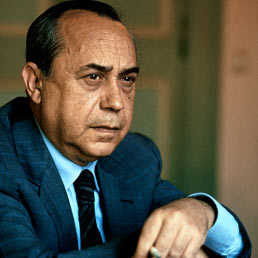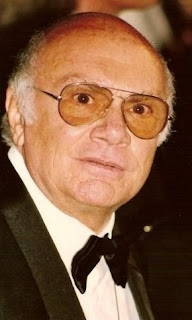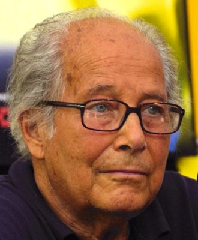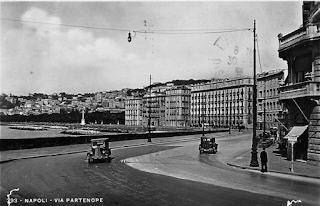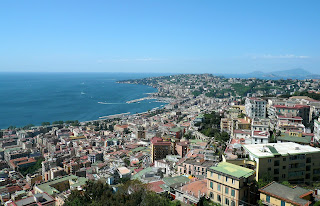Brilliant talent who played ‘spaghetti western’ parts for fun
 |
| Volonté in his role as the police chief in Elio Petri's Investigation of a Citizen Above Suspicion (1970) |
Trained at the Silvio D’Amico National Academy of the
Dramatic Arts in Rome, Volonté became famous outside Italy for playing the
villain to Clint Eastwood’s hero in two movies in Sergio Leone’s western
trilogy that were part of a genre dubbed the ‘spaghetti westerns’.
However, he insisted he accepted the chance to appear in A
Fistful of Dollars (1964) – in which he appeared under the pseudonym John Wells
- and For a Few Dollars More (1964) simply to earn some money and did not
regard the parts of Ramon and El Indio as serious.
In Italy, it was for the much heavier roles given to him by
respected directors such as Elio Petri and Francesco Rosi that he won huge
critical acclaim.
A person known for a tempestuous private life, he was very
strong playing complex and neurotic characters, while his left-wing political
leanings attracted him to roles in which he had to portray individuals from
real life.
He was a particular favourite of Rosi, the neo-realist
director who directed in him in five movies, including the acclaimed The Mattei
Affair (1972), in which he played an oil company executive whose death in a
plane crash in Sicily aroused suspicion, and Lucky Luciano (1973), in which he
portrayed the Sicilian-American Mafia boss controversially released from a
30-year prison sentence in the United States in return for helping the Allies
with the 1943 invasion of Sicily.
 |
| Volonté played the writer Carlo Levi in Francesco Rosi's 1979 film Christ Stopped at Eboli |
Other famous roles included that of a television journalist
in Swiss director Claude Goretta's Death of Mario Ricci (1983), which won him
the him the Golden Palm at the Cannes International Film Festival.
Volonte also played the Italian-born anarchist Nicola Sacco in Sacco
and Vanzetti, the 1971 film by Giuliano Montaldo, a courageous Sicilian judge
in Fascist Italy in Gianni Amelio's 1990 movie Open Doors, which was chosen as European
film of the year at Cannes, and played the Christian Democrat leader and former
prime minister Aldo Moro, whose kidnapping and murder in 1978 at the hands of
Red Brigade terrorists shook Italy, in Giuseppe Ferrara’s Il caso Moro (1986).
His films under Petri’s direction included We Still Kill the Old Way (1967), which won
the Grand Prix du Scenario at the Cannes Film Festival, and Investigation of a
Citizen Above Suspicion (1970), for which Volonte won one of his three Nastro
d'Argento (Silver Ribbon) awards - the most prestigious acting award in Italy,
and which won an Oscar for best foreign-language film.
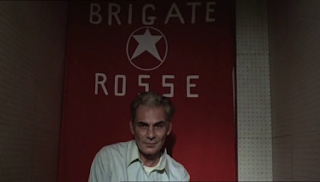 |
| The part of the kidnapped former prime minister Aldo Moro was played by Volonté in Giuseppe Ferrara's Il caso Moro |
He left school at 14 to find work so that he could support
his mother. One of the jobs he took was
with a travelling theatre company, initially as a wardrobe assistant and
secretary, but eventually developing a desire to act, and being granted parts.
It was the realisation that he had some talent as an actor
that persuaded him to move to Rome and enrol at the Silvio D’Amico Academy. After graduating in 1957, he worked in the
theatre and television, appearing in adaptations of Dostoyevski's Idiot, Chekhov's Uncle Vanya and Vittorio Alfieri's Saul.
He was soon recognised as one of the most promising of the
new generation of actors and his movie debut followed in 1960.
Volonté made no apologies for his political leanings. A member of the Italian Communist Party, he was arrested in 1971 during a
demonstration by workers striking for higher wages and better working
conditions and helped his friend and fellow Communist Oreste Scalzone to flee
the country after he was sentenced to 16 years in jail on charges of terrorism Volonté
believed were false.
He stood as a candidate for the Democratic Party of the Left
in the 1992 general election.
Married twice, Volonté had a child, Giovanna, with the
actress Carla Divina, his partner for 10 years, before spending the last years
of his life with another actress, Angelica Ippolito, with whom he lived in
Velletri, a town in the Colli Albani (Alban Hills), just south of Rome.
He died in 1994 of a heart attack while filming on location
in Greece and was laid to rest at a small cemetery on the Sardinian island,
Isola della Maddalena.
 |
| The Silvio D'Amico academy, where Volonté trained, is in Via Vincenzo Bellini in Rome's Municipio II district |
Rome’s National Academy of the Dramatic Arts was founded in
1936 by the writer and critic Silvio D’Amico, whose name was attached to the
academy after his death. After occupying a number of premises, the academy
settled in a building on Via Vincenzo Bellini in the Municipio II district, just beyond
the Borghese Gardens and about 10 minutes’ drive from the centre of the city.
Hotels in Rome from Hotels.com
Hotels in Rome from Hotels.com
Velletri is traditionally a walled city. Its original walls
were demolished by the Romans in 338 BC but rebuilt in the Middle Ages, giving
the town the appearance of a huge castle.
The walls had six gates, the best preserved of which is Porta Napoletana,
built in 1511 and which is now home to a branch of the Italian Sommelier
Association.
More reading:
How neo-realism and documentary style put Francesco Rosi among greats of Italian cinema
Sergio Leone - from 'spaghetti westerns' to gangster epic Once Upon a Time in America
The tragedy of Aldo Moro
Also on this day:
1454: The Treaty of Lodi ends fighting between rival northern states
1948: The birth of veteran pop singer Patty Pravo
Home
More reading:
How neo-realism and documentary style put Francesco Rosi among greats of Italian cinema
Sergio Leone - from 'spaghetti westerns' to gangster epic Once Upon a Time in America
The tragedy of Aldo Moro
Also on this day:
1454: The Treaty of Lodi ends fighting between rival northern states
1948: The birth of veteran pop singer Patty Pravo
Home

